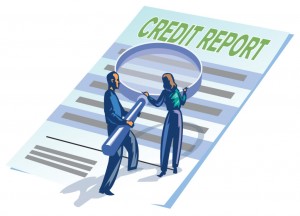FICO Makes Needed Improvements to Their Credit Score
August 8, 2014 | Posted by Blair Warner | No CommentsRecent changes to the way FICO calculates their score could help more home buyers qualify for a mortgage. TWEET THIS…
The New FICO 9
FICO announced yesterday some changes in their analytics which is designed to provide improved credit scores. Not very creatively called FICO 9, the changes should result positively for home buyers and home owners wishing to refinance, allowing for more precise scores commensurate with the credit risk they represent. Of course, time will tell once we see it kick in and are able to assess the results on a large scale.
Medical Collections
With the new changes, FICO has reduced the impact of medical collections on FICO scores by differentiating medical collection from non-medical collections, and even bypassing paid non-medical collection agency accounts. That means it will stop including in their calculations any record that shows a paid or settled collection account. FICO states that this change is expected to increase the median FICO score for consumers whose only derogatory references are unpaid medical collections 25%. This is a huge win for consumers.
Get a FREE credit report analysis by a certified credit consultant here ->
Benefits For Those With Limited Credit
The latest model will also measure a consumer’s payment history in degrees of risk rather than in absolutes, such as simply paid or not paid. Another improvement reflects a better analysis of reports with limited credit history, or thin files, as it is often called.
From FICO.com: “FICO Score 9 uses a more refined treatment of consumers with a limited credit history and those with accounts at collection agencies, so that lenders can grow their credit and loan portfolios more confidently,” said Jim Wehmann, executive vice president for Scores at FICO. “By applying innovative predictive modeling techniques on recent data to capture consumer credit behavior, FICO Score 9 will extend FICO’s leadership in providing the credit score that most accurately and fairly defines U.S. consumer credit risk.”
FICO has said their new FICO 9 Score will be available this fall and “will be the most consistent FICO Score across all three credit bureaus.” It is used by 90 precent of all U.S. consumer lending decisions, with 25 of the largest credit card issuers and 25 of the largest auto lenders. The only caveat is that it does take a while for a broad spectrum of lenders to adopt FICO’s updates. When they do, though, it is indeed going to improve the lending/borrowing world in the U.S.
References:
FICO.com website
Wall Street Journal article
Chicago Tribune Article
By Blair Warner – Chief Editor and Sr. Credit Consultant of UpgradeMyCredit.com
*FICO, FICO Score, and FICO 9 are trademarks of the Fair Issac & Company.




 A common question I get asked is, “what is the secret to a good credit score?” I always hate to answer it so matter-of-factly and quickly because I know they are hoping I can perform magic. The simple answer is, though, the only way to get one is to demonstrate financial responsibility. “Creditors don’t care about how many millions you may have in your investment account, it’s how you use your credit,” says Maxine Sweet, vice president, public education for Experian.
A common question I get asked is, “what is the secret to a good credit score?” I always hate to answer it so matter-of-factly and quickly because I know they are hoping I can perform magic. The simple answer is, though, the only way to get one is to demonstrate financial responsibility. “Creditors don’t care about how many millions you may have in your investment account, it’s how you use your credit,” says Maxine Sweet, vice president, public education for Experian.









